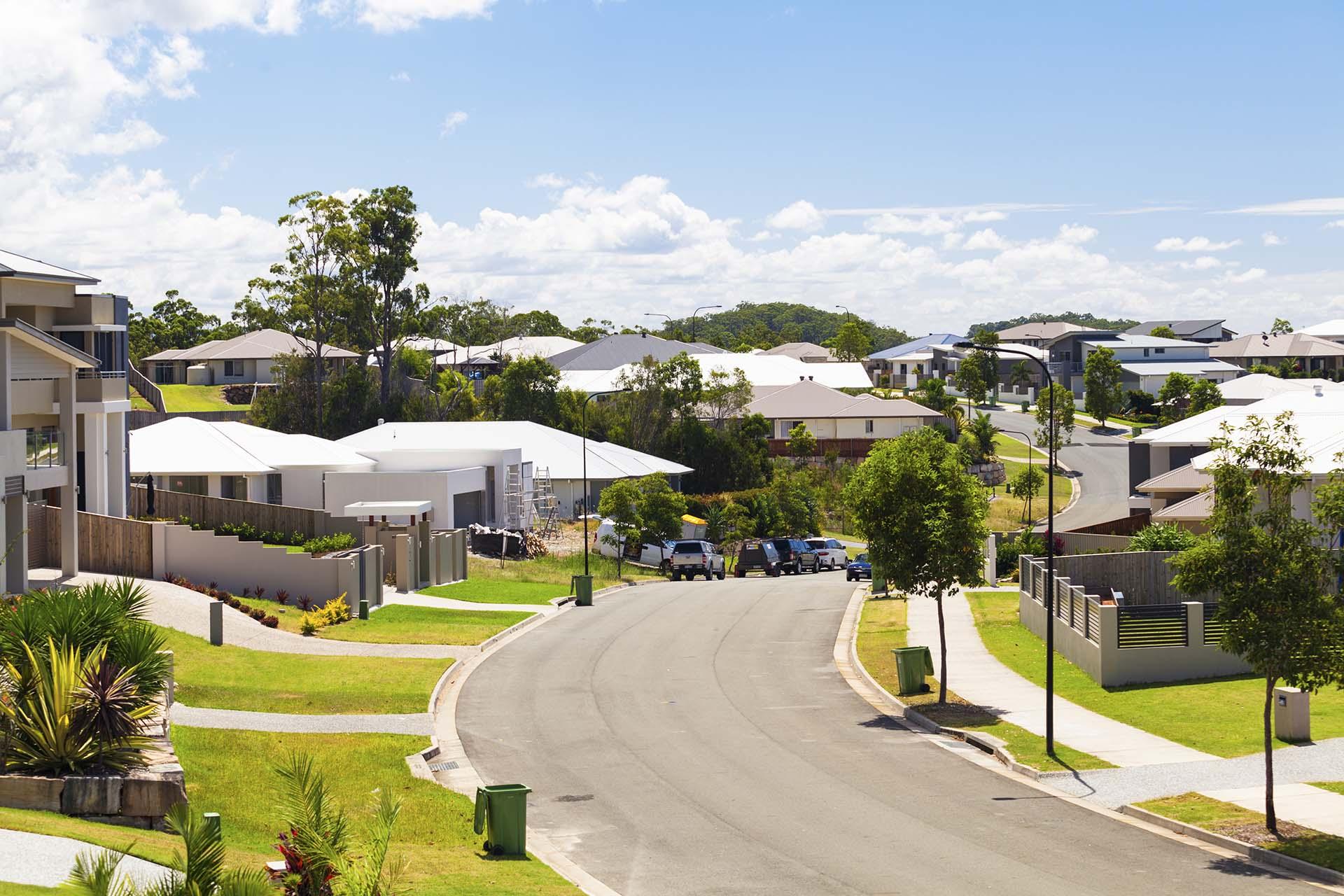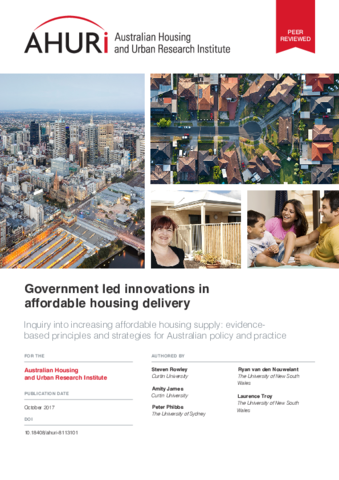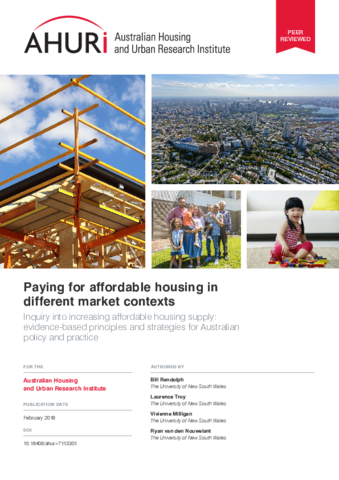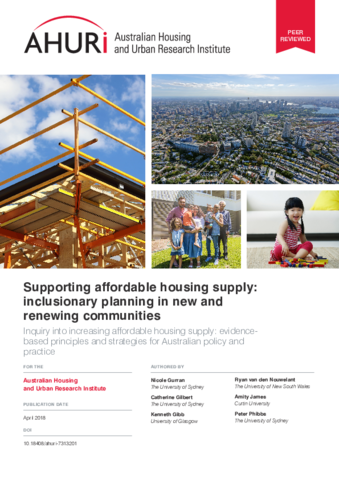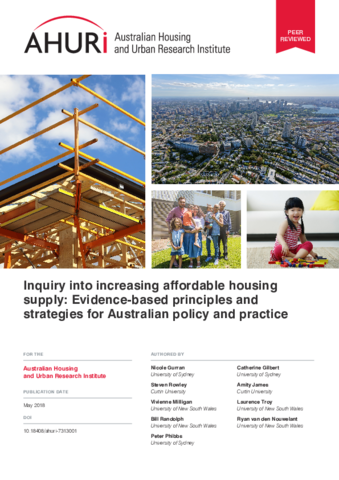Final AHURI Inquiry report
This Inquiry examined how governments have sought to increase the supply of affordable housing across the continuum of housing needs (i.e. from social housing to affordable rental and home ownership), and the implications for transferring policy and practice to different jurisdictions and market contexts.
With an estimated deficit of over 200,000 affordable dwellings across Australia and mounting barriers to first home ownership, there is need for significant reform and innovation across governance, policy and financial parameters to increase the supply of affordable housing.
A holistic national housing strategy is needed to drive outcomes across the entire housing system, integrating the different financial settings, subsidies/grants, policy levers and programs to address the continuum of housing needs. This strategy should set high level targets and provide operational definitions of housing need and affordable housing to ensure that all policy levers and available resources are able to complement and support outcomes across the social and affordable housing sector.
Innovative affordable housing strategies and programs rely on strong political leadership; adopt a whole of housing industry approach to consultation and implementation; and communicate objectives effectively to all stakeholders.
Effective leadership and innovative individuals are key components of a successful strategy/program and the most effective leadership creates the conditions within which innovation can flourish.
A strategy or program must be resilient, with clear targets and measurable outcomes. It must be able to survive a change of government and must be able to maintain its initial momentum through continual reinforcement of key messages and regular communication of achievements.

